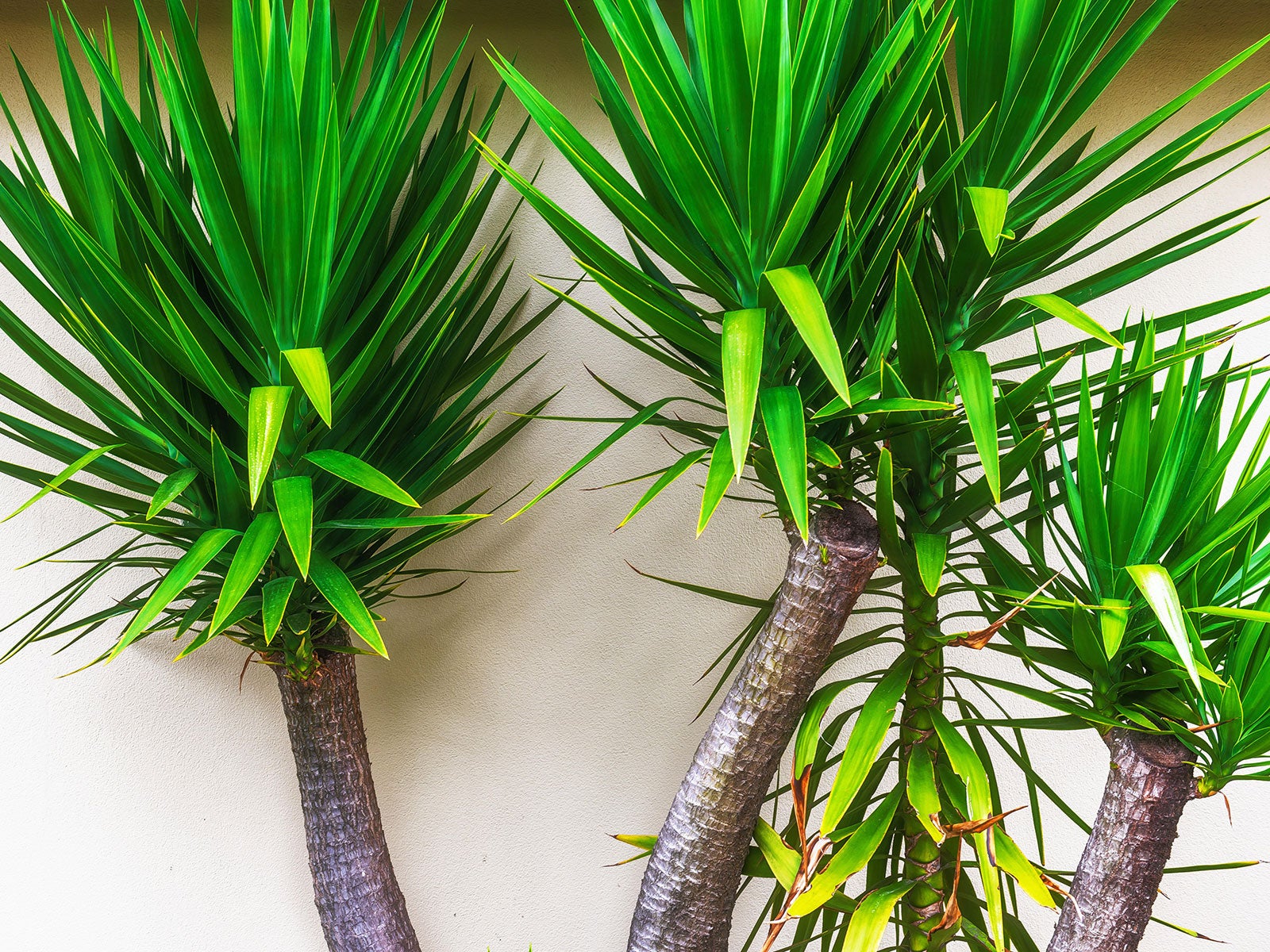Indoor Yucca Plant Care: How To Grow Yucca As A Houseplant
Bring the flavor of the desert inside with an indoor yucca plant. They’re slow growers as houseplants and will thrive for years under proper conditions.

Sign up for the Gardening Know How newsletter today and receive a free copy of our e-book "How to Grow Delicious Tomatoes".
You are now subscribed
Your newsletter sign-up was successful
Indoor Yucca Plants – Caring For A Yucca Indoors
Indoor yucca plants can be grown successfully, even though these plants are classics in warm southern outdoor landscapes. These very recognizable evergreen plants come in a variety of sizes and have 40-50 known species. The most common of these is Spanish dagger, a plant that can reach 30 feet (9 m.) at maturity. A yucca houseplant, however, grows so slowly it can thrive indoors for decades.
QUICK FACTS:
Scientific name- Yucca elephantipes
Height-30 feet (9 m)
Spread- 25 feet (7.5 m)
Sun exposure- Full with some protection
Soil requirements- Well draining with some grit
Sign up for the Gardening Know How newsletter today and receive a free copy of our e-book "How to Grow Delicious Tomatoes".
Hardiness zones- USDA zones 9 +
When to plant- Spring
Indoor Yucca Plant Care
Yucca plants have similar soil and cultural needs as the desert succulent species commonly found in nurseries. They aren’t fussy plants provided they have the correct cultural conditions. Because some, like Yucca elephantipes, grow up to 30 feet (9 m.) with a spread of 25 feet (7.6 m.), keeping a mature plant indoors is beyond most homeowners’ capability. But yuccas are very slow growing plants and can easily be grown in containers. Certain species have very sharp pointed leaves and may not be suitable in the home.
Light & Water Requirements
Yucca plants are in the family Asparagaceae. They are known for their spiked, long leaves and rosette form. Some yucca grow as shrubs, while others develop a tree-like trunk.
Yuccas grow naturally in the south where they receive plenty of sunshine. An indoor yucca plant can be placed just away from a southern or western window, or where it will receive at least 8 hours of sunlight. Harsh noon rays can lead to loss of color.They are tolerant of cool temperatures but will thrive where it is warm.
The indoor yucca plant is drought tolerant but the best growth comes from regular watering. Avoid watering on the leaves as this may promote fungal disease. They need to be watered when the top 1⁄3 of the soil is dry. Cut watering by half in winter.
Best Soil for an Indoor Yucca Plant
One of the biggest issues with indoor yucca plant care is soil. While outdoor yucca can tolerate any soil, indoor plants should have one that is very well draining. A mixture of half sand and half potting soil will suffice, or a purchased cactus food with a bit of peat added. Professional growers use a 3:1 peat and sand mixture. Purchased potting soil will not be able to hold the canes upright and does not provide enough drainage.
Containers for Indoor Yucca
The size of the container will inform the size of the plant. If given enough room to grow, the plant will respond in kind. Smaller containers limit the size of the yucca. Because excess moisture in the soil can damage the roots, ensure there are enough drainage holes in the container. Do not set the container on a saucer where water can collect. An unglazed container will allow excess moisture to evaporate. The best time to plant or transplant a yucca is in spring.
Fertilizing a Potted Yucca Plant
Yucca plants may be fertilized in spring. Feed the plant monthly with a 3-1-2 ratio. If using a time-release fertilizer, feed every 3 months with 19-6-12. Yucca are not heavy feeders but will respond with moderate fertilizer. The pH of the soil will affect efficient uptake of water and nutrients. Make sure the medium has a pH of 5.5-6.5.
Indoor Yucca Plant Problems
The most common indoor yucca plant problems stem from incorrect watering. Too much moisture can lead to root rot. Watering on the leaves promotes a host of fungal diseases like gray leaf spot, brown leaf spot, and Southern blight. There are not many indoor insect problems. However, if the plant is moved outdoors for summer, mealybugs, scale, thrips, and weevils can become infected. Systemic soil drenches with a liquid insecticide are recommended as controls.
How To Propagate Yucca
A yucca houseplant may be propagated from cuttings. Use a sterile, very sharp implement to remove a cane or stem. Spring and summer are the best times to take cuttings. Stip away the lower leaves but leave a small crown of foliage at the top. Set the cutting in a cool, dry location to callus or dry before potting it up in the same medium as the parent plant. In some species, offsets are formed. These may be cleaved from the parent and allowed to callus. Then pot it up and water the medium.
Indoor Yucca Plant Varieties
There are quite a few varieties of yucca to choose from, but here’s a list of some of our favorites for indoor growing.
- Yucca elephantipes
- Yucca filamentosa
- Yucca flaccida
- Yucca glauca
- Yucca baccata
- Yucca constricta
- Yucca rupicola

Becca Badgett was a regular contributor to Gardening Know How for ten years. Co-author of the book How to Grow an EMERGENCY Garden, Becca specializes in succulent and cactus gardening.

